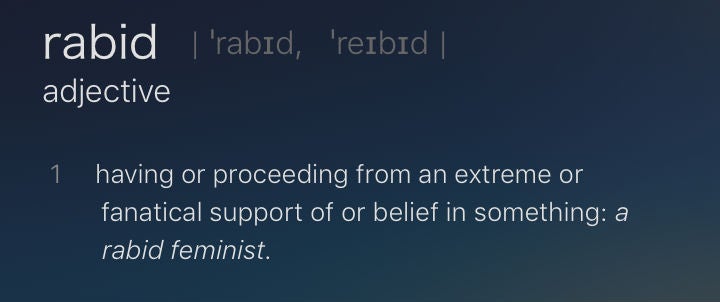Oxford Dictionaries accused of 'sexist' usage examples including 'rabid feminist' and 'nagging wife'
The publisher initially replied flippantly to a tweet from Michael Oman-Reagan but is now promising to review its examples

Your support helps us to tell the story
From reproductive rights to climate change to Big Tech, The Independent is on the ground when the story is developing. Whether it's investigating the financials of Elon Musk's pro-Trump PAC or producing our latest documentary, 'The A Word', which shines a light on the American women fighting for reproductive rights, we know how important it is to parse out the facts from the messaging.
At such a critical moment in US history, we need reporters on the ground. Your donation allows us to keep sending journalists to speak to both sides of the story.
The Independent is trusted by Americans across the entire political spectrum. And unlike many other quality news outlets, we choose not to lock Americans out of our reporting and analysis with paywalls. We believe quality journalism should be available to everyone, paid for by those who can afford it.
Your support makes all the difference.Oxford Dictionaries has agreed to review the language used in its definitions after coming under fire for sexism.
The publisher, part of Oxford University Press, currently prints “a rabid feminist” as a usage example for the adjective “rabid”, defined as “having or proceeding from an extreme or fanatical support of or belief in something”.
Canadian anthropologist Michael Oman-Reagan noticed this and tweeted Oxford Dictionaries to complain, while also drawing attention to other “explicitly sexist” examples such as “bossy” (“a bossy, meddling woman”), “psyche” (“I will never really fathom the female psyche”), “nagging” (“a nagging wife”), “shrill”, (“the rising shrill of women’s voices”) and “grating” (“her high, grating voice”).
Oman-Reagan highlighted the irony of the Oxford Dictionary’s own usage example for ‘sexism’ (“sexism in language is an offensive reminder of the way the culture sees women”) in a post on Medium, arguing: “Shouldn’t the usage examples in this dictionary reflect that understanding of sexism in language?”
Oxford Dictionaries dismissed Oman-Reagan’s suggestion at first, sarcastically replying to his tweet: “If only there were a word to describe how strongly you felt about feminism…”
Later posts attempted to clarify its “point” that ‘rabid’ is “not necessarily a negative adjective” and argue that “example sentences come from real-world use and aren’t definitions”.
However, the damage was done, and ‘rabid’ rocketed to the top of the trending words list on the Oxford Dictionaries website, prompting the publisher to apologise for its “flippant” tone and promise to “review the primary example sentence used for ‘rabid’”.
An official statement released on Monday read: “We apologise for the offence that these comments caused. The example sentences we use are taken from a huge variety of different sources and do not represent the views or opinions of Oxford University Press.
“That said, we are now reviewing the example sentence for ‘rabid’ to ensure that it reflects current usage.”
Other examples raised by Oman-Reagan will also be reviewed.
Join our commenting forum
Join thought-provoking conversations, follow other Independent readers and see their replies
Comments